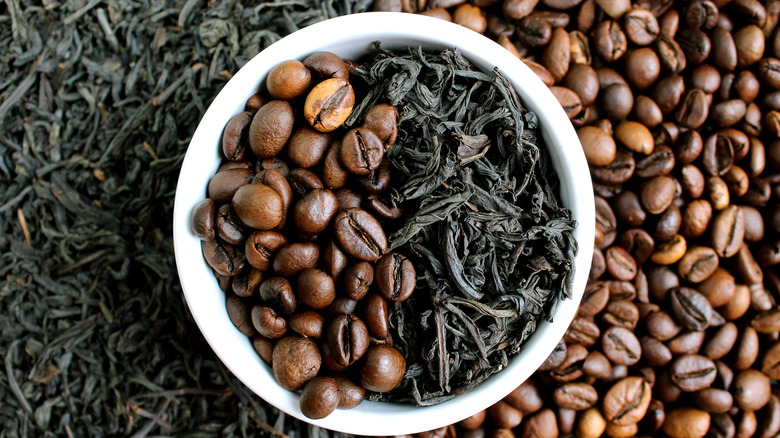Coffee, a cherished beverage enjoyed around the world, boasts a rich history and a multitude of benefits. Originating in Ethiopia, the journey of coffee from a humble plant to a global commodity is captivating. Consumed in myriad forms, from espresso to cappuccino, coffee has become an essential part of many people’s daily routines. Beyond its delightful taste and invigorating aroma, coffee offers several health benefits, making it much more than just a morning pick-me-up.
One of the foremost benefits of coffee is its ability to enhance mental alertness and cognitive function. The caffeine in coffee acts as a stimulant to the central nervous system, leading to increased alertness and reduced fatigue. This makes coffee an excellent choice for those needing a mental boost, whether for work, study, or simply staying awake during long hours. Studies have shown that regular coffee consumption can improve cognitive functions such as memory, mood, vigilance, energy levels, reaction times, and overall mental performance.
Coffee is also rich in essential nutrients and antioxidants. A single cup of coffee contains small amounts of vitamins B2 (riboflavin), B3 (niacin), B5 (pantothenic acid), manganese, and potassium. These nutrients contribute to the body's overall health. More importantly, coffee is a significant source of antioxidants, which help combat free radicals in the body, reducing oxidative stress and inflammation. This antioxidative property is linked to a reduced risk of several chronic diseases, including heart disease and certain cancers.
Moreover, coffee has been associated with a reduced risk of several serious illnesses. Regular consumption has been linked to a lower risk of type 2 diabetes. This is thought to be due to coffee’s ability to enhance insulin sensitivity and improve glucose metabolism. Research has also indicated that coffee drinkers have a lower risk of developing Parkinson's disease and Alzheimer's disease. The neuroprotective effects of caffeine and the antioxidants in coffee may contribute to these protective benefits.
Coffee also plays a role in liver health. Studies have found that coffee drinkers have a lower risk of liver cirrhosis, especially alcoholic cirrhosis. Coffee consumption is also associated with a reduced risk of liver cancer. These benefits are believed to be due to the compounds in coffee that support liver function and reduce inflammation.
In addition to its health benefits, coffee can also enhance physical performance. Caffeine increases adrenaline levels, preparing the body for intense physical exertion. It also helps in the breakdown of body fat, making fatty acids available as fuel. This can lead to improved performance in endurance exercises. Many athletes consume coffee before workouts to benefit from these performance-enhancing effects.
While coffee has numerous benefits, it is not suitable for everyone. Some individuals may experience negative side effects, such as anxiety, restlessness, or gastrointestinal issues, especially when consumed in large quantities. For those who need or prefer to avoid coffee, several alternatives can provide similar benefits without the potential drawbacks.
One popular alternative is green tea. Green tea contains less caffeine than coffee, which can be advantageous for those sensitive to caffeine's effects. It is also rich in antioxidants, particularly catechins, which have been shown to improve brain function, aid in fat loss, and reduce the risk of cancer and heart disease. Green tea also contains the amino acid L-theanine, which has calming effects and can counteract some of the jitteriness associated with caffeine.
Another excellent alternative is kratom, a plant found in South East Asia. Kratom provides a more concentrated source of nutrients and effects compared to regular green tea. It offers a steady release of energy without the spikes and crashes often experienced with coffee. Kratom is also known for its potential to enhance mental clarity and focus, making it a suitable choice for those seeking cognitive benefits. Kratom comes in three varieties: red, green and white vein. Buy lab tested kratom Canada has the best selection of kratom that you can find online.
For those who prefer a caffeine-free option, herbal teas can be a great choice. Herbal teas, such as chamomile, peppermint, and rooibos, offer a variety of flavours and health benefits. Chamomile tea, for instance, is known for its calming properties and can help with sleep and relaxation. Peppermint tea aids digestion and can alleviate headaches, while rooibos tea is rich in antioxidants and supports heart health.
In conclusion, coffee is a multifaceted beverage with numerous health benefits, from enhancing mental alertness and cognitive function to reducing the risk of chronic diseases and improving physical performance. However, it is essential to consume it in moderation and be mindful of individual tolerance levels. For those who cannot or choose not to drink coffee, alternatives like green tea, matcha, and herbal teas provide a range of health benefits and can be a delightful addition to one’s daily routine. Whether you are a coffee enthusiast or prefer other beverages, the key is to enjoy your drink mindfully and reap the benefits it has to offer.





Comments